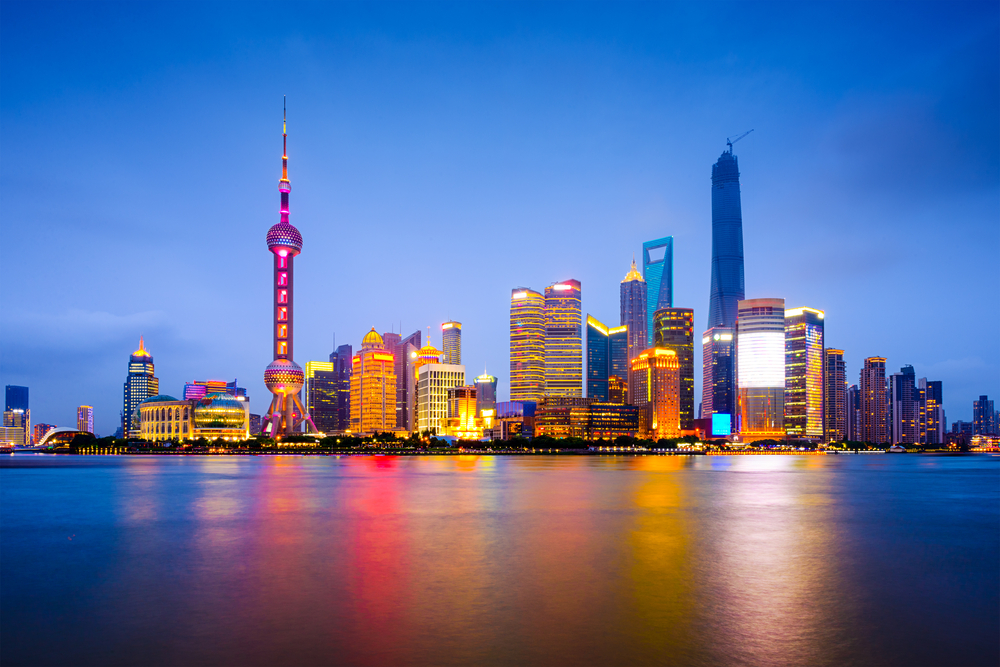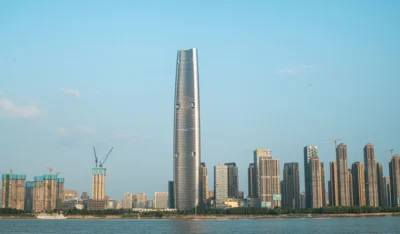Back to the future with Coco Liu
Coco Liu of advisory and accounting network HLB has resumed her busy travel schedule and is reconnecting with peers around the world in anticipation of seismic shifts in the real estate industry

Before the pandemic, Coco Liu was constantly on the go. The London-based strategic business development executive for HLB, the global advisory and accounting network, says she boarded a different long-haul flight every month.
Her busy schedule took her not only to Asia, where she serves as HLB’s chief regional officer, but also to far-flung locales in Australia and emerging markets in Africa and Eurasia.
The person-to-person connections Liu developed on those trips were invaluable, she says, especially in places like China, where business is often an outgrowth of personal relationships nurtured over long dinners and social events.
With travel restrictions finally easing, Liu is taking to the skies again. She embarked on a whirlwind 10-day, four-nation trip to Asia in July to meet HLB network members and business partners, and her travel schedule through the end of the year is packed with flights to Germany, Portugal, the Middle East, and back again to Asia.
“2022 is really the year of opening up and reconnecting,” Liu says. “For HLB we had our first face-to-face global conference in July. People couldn’t wait to meet again. There are so many opportunities driven by these connections.”
I’m really focused on growth and collaborations, and I help grow our business ecosystem by recruiting dynamic member firms to the network. Everyday I face something new. It’s challenging but also exciting and rewarding
In her 16 years with HLB, Liu has watched the network expand from a traditional accounting, taxation, and audit services provider to more of a holistic business advisory role, working to help clients achieve broader sustainable growth.
In addition to her role as chief regional officer, Liu is also head of HLB’s global business channels. In these twin leadership roles, she’s helped launch two major initiatives.

HLB’s Global China Service promotes and facilitates two-way trade and investment opportunities between greater China and the rest of the world. And the Business Channel Development Initiative, a value-added service, connects HLB clients with outside experts in law firms, government agencies, multinational banks, and other professional services providers.
“I’m really focused on growth and collaborations, and I help grow our business ecosystem by recruiting dynamic member firms to the network,” Liu says. “Every day I face something new. It’s challenging but also exciting and rewarding.”
What’s been the secret to the Global China Service’s success?
We launched the Global China Service in 2010. At that time, we were the first company in the mid-market to have a global initiative to facilitate two-way trade and investment between China and the rest of the world.
Foreign direct investment in China was handled seamlessly by our member firms in China through their 40 locations. But HLB was also determined to help Chinese outbound initiatives—to help Chinese companies grow globally. And so we set up Chinese-speaking desks in nearly 30 markets around the world.
We try to provide a one-stop-shop experience to these Chinese companies. We offer many services in-house, but for others—like legal services that are normally done by law firms, not CPA firms—we have reliable business channel partners we recommend to Chinese clients. Our service has been quite successful and we won an award for the best Global China Service in 2015, which was a nice recognition of what we have achieved.
Tell us a bit more about HLB’s global network.
HLB is a global network covering 157 markets, and each member firm is different. We respect their independence and their differences and also their local positioning. However, when we come together as a network, we also try our best to identify synergies in areas where we can work together. Typical clientele is very different from region to region. In Europe, typical clients are SMEs or hidden champions. But in Asia-Pacific, typical clientele are large state-owned companies, large corporates and listed companies.
Our clients don’t want to shop around, especially those going to a whole new market. They trust us because we’re their auditor or tax advisor, but they don’t know anyone who can do their legal service or evaluation or buy them a property. So we try to bring everything together, which is a win-win arrangement for everyone.
What are some advantages for you being based in the UK?
A lot of people I meet assume that I’m based in Hong Kong or Singapore, but I’m in London. I think the advantage is that this is an Alpha++ city. It’s the location of a lot of global headquarters, especially for professional services providers—not only accounting networks, but also legal networks. So the connections are dynamic. London also has an advantage because it’s in the center geographically whether you go to the US or go to Asia.

HLB works with many companies in the real estate sector. What do you think the next decade looks like for global property markets?
With the pandemic, we’ve seen how new technology is playing a very important role in all sectors. There’s a very hot topic right now and that’s the metaverse. I think there will be a big trend for real estate to embrace it. This is a place where people will be able to work, play and socialise in the future. We already see people buying “land” in the metaverse with real money, and many retailers like Gucci and Gap are buying boutiques there to boost their real-world sales.
In our view, the metaverse will be a game-changer for the world of real estate. For instance, virtual tours will reduce hassle and enhance user experience for property buyers. The metaverse will also enhance efficiency and boost sales for real estate agencies. This will lead to new opportunities and business lines for designers and developers because people are buying “land” in the metaverse and they are going to create virtual homes for avatars as well.
You and HLB both help oversee judging in the PropertyGuru Asia Property Awards. What do you think participants gain from being part of the awards?
Of course, the winners are recognised for their achievements, but in my view the biggest gain for all participants is the connection to the ecosystem that has been created— the connection to your industry peers, judges, and other stakeholders. People can also gain inspiration by observing best practices in the sector and exploring synergies with one another.
You were personally the recipient of the 2018 CEO Today Asia Award. What was this in recognition of?
I was very honoured to win that award, which recognised leadership in Asia-Pacific. It was a very strong personal encouragement for me about what I have achieved. But I also think the award is recognition of HLB’s culture of innovation and collaboration. We are not a loose, club-style association but a true network. Everyone is engaged. We share the same values and we really do things to move.
What is your leadership philosophy?
I think my leadership style is slightly different from a lot of leaders in western markets. Of course, I’m driven to achieve, but I am a strong believer in Asian and Chinese philosophy. There is an old Chinese saying: “The time should be right, the terrain should be favourable, and the people must be unified.” Those are the key elements for success.
I really value synergies for collaborations. I do a lot of research on new trends and my leadership style is very adaptive. I respect cultural dynamics and always consider the value I can bring to collaborations when I’m crafting strategies or creating business cases. I’m very happy whenever I develop good relationships with people in our member firms and clients and business partners.
This article was originally published on asiarealestatesummit.com. Write to our editors at [email protected].
Recommended
Malaysia property market rebounds with foreign interest and growth
The nation’s property market is stirring to life, fuelled by foreign buyers and major infrastructure drives
China’s renewable energy surge redefines housing norms and development
From exporting solar panels to building entire green-powered neighbourhoods, China’s renewable surge is redefining housing norms
Philippine real estate stays resilient amid political turmoil
The arrest of former President Rodrigo Duterte is a huge political plot twist. But the real estate sector in the Philippines is not (yet) flinching
Vietnam housing market poised for growth despite tariff challenges
With possible punitive US tariffs looming over the economy, Vietnam’s otherwise buoyant housing market has entered a cautious stage








